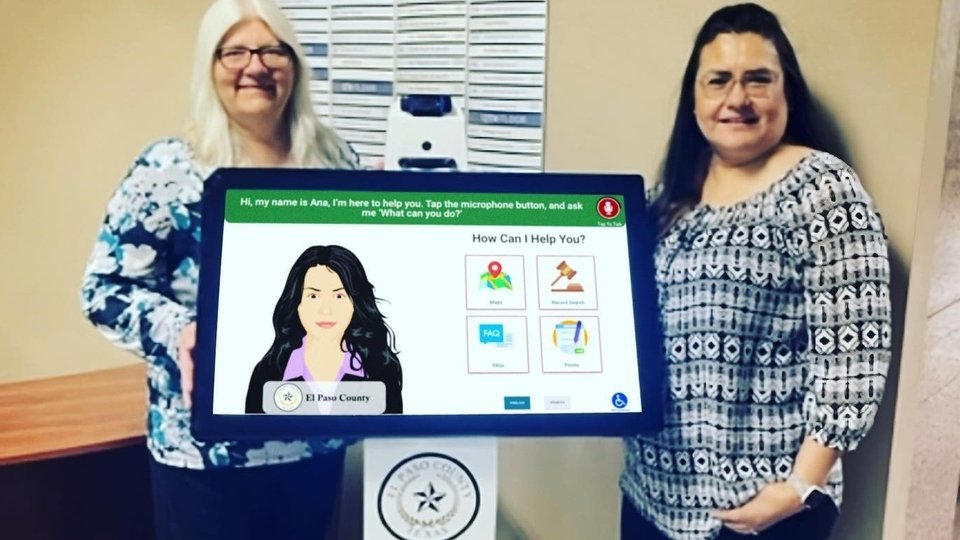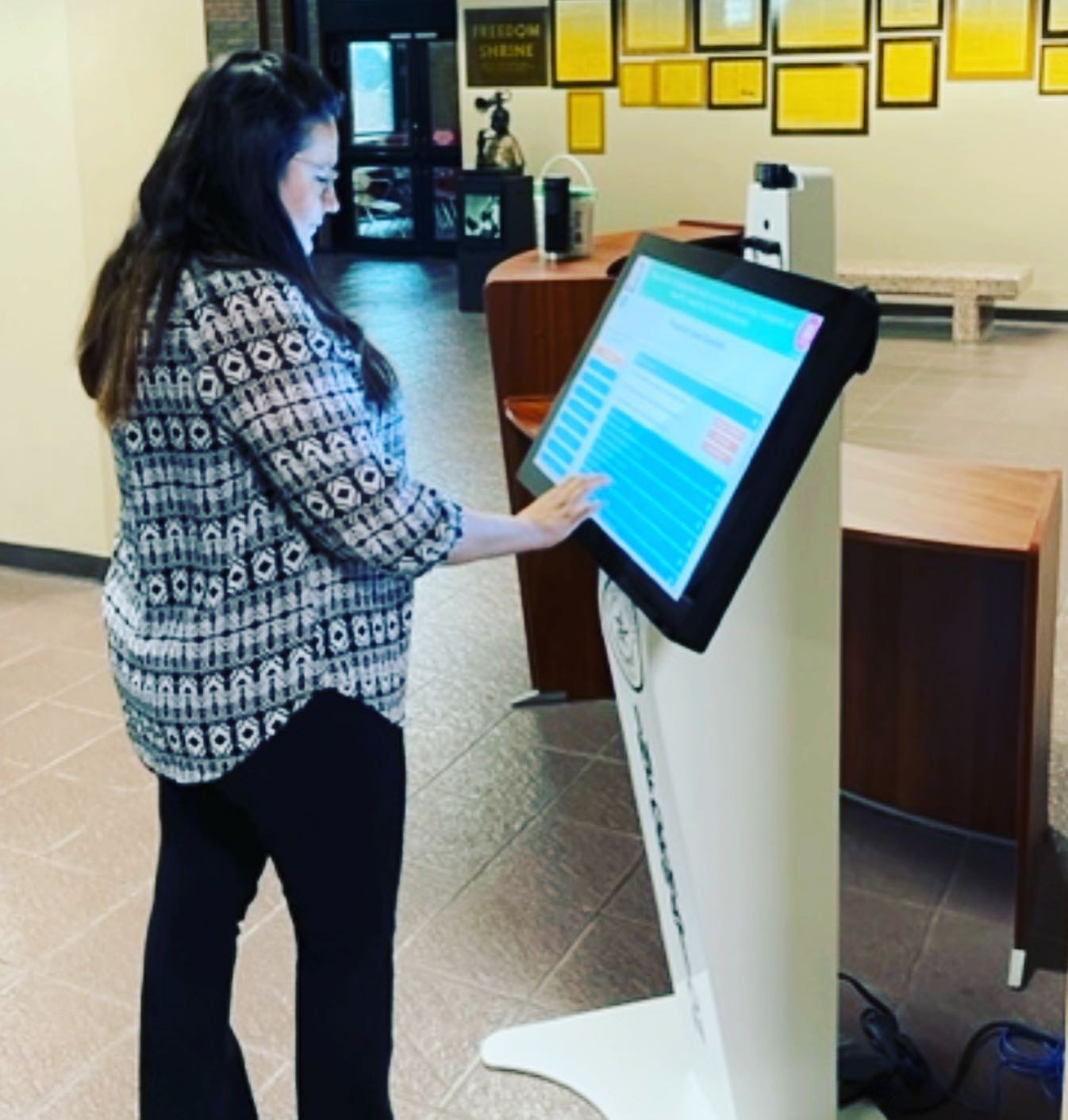Government
AI-powered kiosks deliver legal services in Texas county

January 12, 2024
The county courthouse in El Paso County, Texas, recently installed two kiosks to provide legal services to residents, with three more planned for the coming months at various locations around the county, according to a press release.
A third set of kiosks will be installed at retail settings once the companies grant their approval.
The kiosks, provided by Advanced Robot Solutions, which provides AI-driven kiosks, robots and web and mobile applications, ensure equal access to legal services for all residents, regardless of their age and socio-economic status, according to Brian Stanley, the head of the county's domestic relations office.
"Access is a huge key for us, and these kiosks provide just that," Stanley said in a prepared statement. "They help provide that access to our residents and also support (county departments and) personnel."
 |
Sandra Andrade searches for information using the kiosk. |
Access critical to residents
Such access is particularly important given the makeup of El Paso County's geography. With more than 865,000 residents, El Paso is the ninth most populous county in Texas, located on the far western border of Mexico and New Mexico.
Outside of the largest cities like El Paso, Horizon City, San Elizario and Socorro, much of El Paso County is open land that includes colonias, defined as housing developments for low-income residents that sometimes lack basic services.
The county is also home to Fort Bliss, a U.S. Army post based in the city of El Paso that expands into the New Mexico border. Fort Bliss has a population of about 9,000 and covers nearly 1 million acres.
Communicating all the services available through El Paso County to a diverse group of residents is critical in helping them to get the services they require. The kiosks provide access, visibility and branding that can remind constituents of available support and resources.
Assistance for legal needs
County officials first discussed introducing public kiosks in the early months of COVID-19, according to Lynn Sanchez, the county's law library manager. The county realized it would be difficult to maintain communications with some of its most at-need residents, especially given the number of remote workers and limited hours for public access to county buildings.
Initial funding for the kiosks was provided by federal monies made available to state, territorial, local and tribal governments around the U.S. under the $350 billion American Rescue Plan Act provided in response to the spread of COVID-19.
Given some of the challenges some residents have with Wi-Fi connectivity and transportation, a plan was developed to expand access further into the retail sector where residents would be more likely to visit on a regular basis.
The first two kiosks provide the department with efficiencies, which encouraged county officials to add kiosks to retail settings.
"The idea is that we want to be where we know our residents will be going like the grocery store or other common (retail settings)," Stanley said.
One example of where this would have been useful was during the Texas ice storm in Winter 2021, where parts of the El Paso County's water system came to a standstill. During this time the county was trying to communicate with residents who often were without power for extended periods of time.
Having a kiosk in a retail setting could have allowed it to keep power, with many large retailers having some type of backup generator in place. The current goal is to place kiosks in such high traffic, highly visible retail areas.
Approval with national chain companies has proven to be a challenge, but the county is also in discussions with a locally owned market with multiple locations that has a large percentage of underserved customers.
Here, the kiosks would prevent the need for going to the county office or courthouse to conduct county business or access resources.
This also allows such business to be conducted during evenings and weekends if needed, adding another layer of convenience.
Access to common residential needs
Another benefit the kiosks offer is providing access to legal forms. The state does not have standardized forms for many types of common legal proceedings such as divorces, personal protective orders and more. In addition, each local county or municipality has their own system for filing and tracking this type of information, which can make it confusing for many residents to understand how they can accomplish legal tasks without assistance.
Many residents cannot visit the county courthouse or offices because of their employment hours.
The technology is programmed so that the more often a question is asked or a topic covered, the kiosk will provide information, often to the point where little or no follow-up is needed with a staff member.
If residents have questions or needs that require a human touch, the employees can connect directly with them by video on the kiosk during county business hours.
Other information available through the kiosks include:
- Building directions which helps guests understand where to go when they need to visit a specific office or department.
- Department contacts.
- Common FAQs such as hours of operation, access to and location of forms, resource allocation information and more.
- Employment applications for open positions.
 ChatGPT
ChatGPT Grok
Grok Perplexity
Perplexity Claude
Claude










